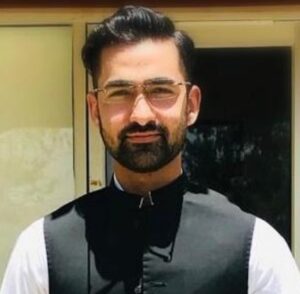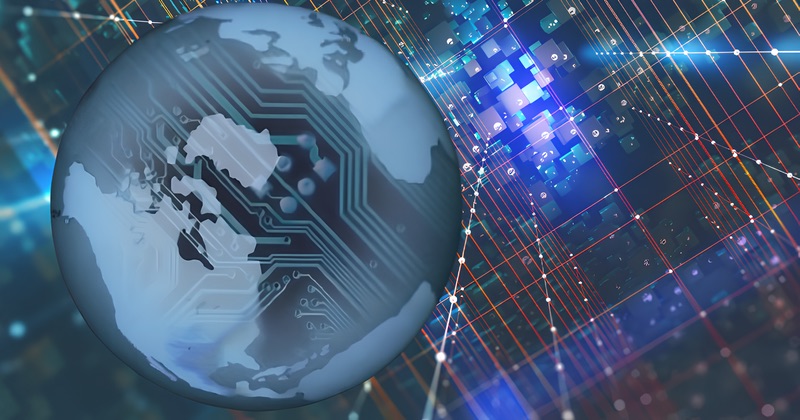By Muhammad Faisal
For many years, the evolution of technology has shaped the main causes of conflict as well as the organizational models of societies. Previously combat involved swords and martial arts; while on the present-day guns and mechanised weapons are the main controllers.

The rate at which technology has taken over recent society is unparalleled, yet its implications are often overlooked by policymakers and the public alike. The coming of the advanced technologies such as; The combination of AI, UAVs and the 6th generation air fighter jet have turned the previous military tactics, and changed the way the nations demonstrated the power on the global scale. At the same time, nations are finding their way through significant ethical, strategic, and social issues.
Thanks to the creativity and innovation by researchers, there are efforts to incorporate emergency decision making protocols into AI. However, the cost of delivering such a high level of accuracy is a significant one; Such developments have been a topic of considerable interest in the areas of ethics and humanitarian considerations. “Humans, however, are capable of expressing emotions alongside their responses due to empathy and emotional intelligence—traits that AI systems lack and cannot truly replicate.
Progress in this regard engenders the fear of a dehumanized conflict environment where elementary human judgement which were once considered ethical may be subverted by uncaring, logically cold choices. The increased reliance on such systems also calls on us urgently to think about accountability issues, especially when armed conflicts end in the loss of civilian lives or violating the international humanitarian laws.
The extreme pace of new technologies development has sharpened international concerns in safety. Later, classical realists, such as Hans Morgenthau argue that states aim to look for military supremacy over other countries because of the disorder and the debate over power in the international system.
The enactment of the autonomous weaponry and the drone’s deployment, therefore, has triggered a cycle of perpetual arms race. According to Professor Harari’s 21st lesson for the 21st century, countries end up getting swept in an everlasting arms race based on technological viability, and not ambitions for supremacy. This is how the fears of falling behind technologically and the horror of the outcome are used to make states sustain an endless arms competition with no way out.
Asides from military applications, technological advancement is subliminally changing the way people interact, form perspective, and ultimately influence individual electoral decisions. What these systems are essentially able to do is to capitalize on large volumes of data to make accurate projections on results, and, lapse into affecting how users decide, subtly. “This is a different form of ‘surveillance capitalism’ that uses personal information for both predictive ends and the direct effects on user choices”. This strategy is intended to curtail individual liberty allowing the users to cede decisions to algorithms, which has broader ramifications than merely influencing people’s perspective.
The expanding dominance of AI in individual decision-making comes with a high threat to creativity and analytical-thinking as well as independent decision making. The regular use of automated decision-making systems results in the passive user thought process – the user passively follows the instructions of the algorithm.
On the whole, the evolution of technology is a big contradiction on its own. Although these developments enhance military accuracy and fuel social efficiency, it also involves significant threats to ethical theory, political freedom and personal freedom. Pakistan, and other states, faces an important crossroads: Pakistan could choose to adhere to the current global practices or become participants in determining their future direction. It provides Pakistan with a way to leverage ethical leadership, make bold investments, and engage in the global partnership to consign Pakistan’s competitiveness as well as protect citizens and institutions from the unintended consequences of unregulated technology.
“From the existence of humans, the evolution of technology has shaped the main causes of conflict as well as the organizational models of societies. Previously combat involved swords and martial arts; while on the present-day guns and mechanised weapons are the main controllers. The coming of the advanced technologies in the 21st century have turned the previous military tactics, and changed the way the nations demonstrated power on the global scale. However, Such developments have been a topic of considerable interest in the areas of ethics and humanitarian considerations”. For the complete article, a word file is attached.
Author: Muhammad Faisal – Research Intern at Balochistan Think Tank Network (BTTN) Quetta, Pakistan.
(The views expressed in this article belong only to the author and do not necessarily reflect the editorial policy or views of World Geostrategic Insights).







